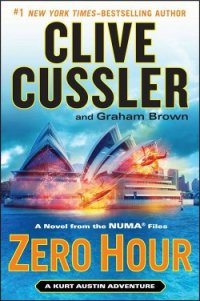Restless - Boyd William (читаемые книги читать онлайн бесплатно TXT) 📗
Just before she went to bed, Morris Devereux telephoned. His voice sounded tense, on edge – he had abandoned his usual languid drawl.
'Can you speak?' he asked. Eva looked round and saw that Sylvia was clearing the dishes from the table.
'Yes, absolutely fine.'
'Sorry to call you so late, but something's bothering me and only you can provide the answer.'
'What is it?'
'Why didn't you just give the map to Raul?'
'Sorry?'
'I mean: those were your instructions, weren't they? You were simply meant to give a "package" to Raul along with the money.'
'Yes.'
'So why didn't you?'
She looked round, she could hear the clatter of dishes from the kitchen.
'Because I checked it and I thought it was botched. Inferior material – something rotten.'
'Did anyone tell you to check the merchandise?'
'No.'
'So why did you?'
'Because… Because I thought I should…' She asked herself why: it had been a matter of complete instinct. 'I just thought it was good procedure.'
He went quiet. Eva listened for a second and then said: 'Hello? Are you there?'
'Yes,' Morris said. 'The thing is, Eve, that if you'd just given the merchandise to Raul as instructed, then none of this would have happened. Don't you see? It all happened precisely because you didn't do what you were supposed to.'
Eva thought about this for a moment: she couldn't see what he was driving at.
'I don't follow,' she said. 'Are you saying that this is somehow all my fault?'
'Jesus Christ!' he said softly, abruptly.
'Morris? Are you all right?'
'I see it now…' he said, almost to himself. 'My God, yes…'
'See what?'
'I have to do some checks tomorrow. Let's meet tomorrow. Tomorrow afternoon.' He gave her instructions to go to a cartoon-news theatre on Broadway, just north of Times Square – a small cinema that showed cartoons and newsreels on a 24-hour loop.
'It's always empty around four,' Morris said. 'Sit in the back row. I'll find you.'
'What's going on, Morris,' she said. 'You can't leave me dangling like this.'
'I have to make some very discreet enquiries. Don't mention this to anyone. I'm worried that it may be very serious.'
'I thought everyone was thrilled to bits.'
'I think the crows in Las Cruces may have been our friends in grey.'
Our friends in grey were the German-American Bund.
'Locals?'
'Further afield.'
Jesus.
'Don't speak. See you tomorrow. Good-night.'
She hung up. Morris was talking about the Abwehr or the SD – the Sicherheitsdienst. No wonder he was worried – if he was right then the Germans must have someone in BSC – a ghost at the heart of the operation.
'Who was that?' Sylvia asked coming out of the kitchen. 'Coffee?'
'Yes, please. It was Morris. Some accounting problem at Transoceanic.'
'Oh, yes?' They all knew when they were lying to each other but nobody took offence. Sylvia would just log this fact away: it was too unusual – it showed how worried Morris must be to have drawn attention to himself in this way. They drank their coffee, listened to some music on the radio and went to bed. As she drifted off to sleep Eva thought she heard Sylvia making a short phone call. She wondered if she should have told Sylvia of Morris's suspicions but decided, on balance, that it was better to have them confirmed or denied before she shared them. As she lay in her bed she reran their conversation: Morris had seen something in the events at Las Cruces that she hadn't or couldn't. She wondered further if she should tell someone about this meeting with him tomorrow – as insurance. But she decided not to – she should just let Morris explain how he saw things. For some reason she trusted him and to trust someone, she knew all too well, was the first and biggest mistake you could make.
But there was no sign of Morris at the office the next morning – even by lunchtime he still hadn't put in an appearance. Eva was working on a follow-up story to the Mexican map, all about a new generation of four-engined German passenger planes – based on the Condor Fw 200 submarine hunter – that had a non-stop range of 2,000 miles, more than enough to cross the Atlantic to South America from West Africa. She thought that if she could place the story with a Spanish newspaper – El Diario or Independiente - that an Argentine airline had ordered six, then it might have some legs.
She drafted it out and took it through to Angus, who seemed to be more and more a presence at Transoceanic, these days, and less and less at OBA.
He read it quickly.
'What do you think?' she said.
Angus seemed distracted – not particularly friendly – and she noticed the ashtray in front of him was dense with buckled cigarette butts.
'Why Spain?'
'Better to start it there so Argentina can deny it. We get more mileage if it starts in Spain and then is picked up in South America. Then maybe we can try it here in the US.'
'Do these planes exist?'
'Condors exist.'
'Right. Seems fine. Good luck.' He reached for his cigarette case again – he clearly couldn't care less.
'Have you seen Morris, by any chance?' she asked.
'He said he had to spend the day at Rockefeller – following something up.'
'Is something wrong, Angus? Is something going on?'
'No, no,' he said, just about managing a convincing a smile. 'Rather too many Martinis last night.'
She left him, feeling slightly disturbed: so Morris was at BSC – interesting that Angus knew that. Had Morris told Angus anything? Could this explain Angus's untypical brusqueness? She pondered these issues as she typed up her Condor story and took it to one of the Spanish translators.
She had a late lunch at an automat on Seventh Avenue, where she bought a tuna sandwich, a slice of cheesecake and a glass of milk. She wondered what Morris could possibly glean at Rockefeller. The Las Cruces job had originated at BSC, of course… She ate her sandwich and for about the hundredth time ran through the events that had led to her encounter with de Baca, looking for something she might have missed. What had Morris seen that she hadn't? So: de Baca shoots her and makes sure that her body is quickly found. The map is discovered and some $5,000. What does this say to anybody? A young female British agent is discovered murdered in New Mexico with a suspect map. All eyes – all FBI eyes – would turn to BSC and wonder what they had been planning here. It would be highly, damagingly embarrassing – a nice Abwehr counter-plot, she could see. A British agent exposed distributing anti-Nazi propaganda. But we did nothing else, she said to herself, given the chance, and everybody at the FBI must be aware of this state of affairs – what would be so sensational about that?
But various rogue details tugged at her sleeve. Nobody had ever suggested that the Abwehr could run such an operation in the United States. A whole shadowing brigade from New York to Las Cruces – moreover, one with such resources and such refinements that she couldn't spot it and its members somewhere along the way. She had been highly suspicious – which is how she had snared the local crows. How big would the team have had to be? Six, eight? Changing over all the time, maybe with one or two women? She would have spotted them, she kept saying to herself, or would she: the whole time in Las Cruces she had been suspicious. It's very hard to follow a suspicious target, but she had to say she had never thought about women. But then again, she thought: why was I suspicious? Was I semi-consciously aware of the rings being run around me. She stopped thinking and decided to go early to the cartoon theatre. A laugh or two might be just what she needed.
She waited two hours for Morris at the theatre, sitting in the back row of the near-empty cinema, watching a succession of Mickey Mouse, Daffy Duck, and Tom and Jerry cartoons interspersed with newsreels that occasionally contained news of the war in Europe. 'Germany's war machine falters at the gates of Moscow,' the announcer intoned with massive, hectoring insistence, 'General Winter takes command of the battlefield.' She saw horses floundering up to their withers in mud as fluid and gluey as melted chocolate; she saw exhausted, gaunt German soldiers with sheets tied around them as camouflage, numbly running from house to house; frozen bodies in the snow taking on the properties of shattered trees or outcrops of rock: iron-hard, wind-lashed, unmovable; burning villages lighting the thousands of Russian soldiers scurrying forward across the icy fields in counter-attack. She tried to imagine what was happening there in the countryside around Moscow – Moscow, where she had been born, and which she couldn't remember at all – and found that her brain refused to supply her with any answers. Donald Duck took over, to her relief. People began to laugh.



